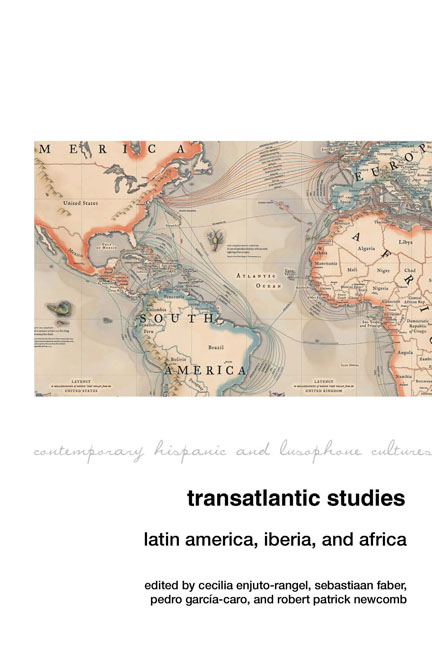Book contents
- Frontmatter
- Contents
- Introduction: Transatlantic Studies: Staking Out the Field
- Transatlantic Methodologies
- Transatlantic Linguistic Debates
- Transatlantic Displacement
- Transatlantic Memory
- Transatlantic Postcolonial Affinities
- Transatlantic Influence
- Epilogue: The Futureâif There Is OneâIs Transatlantic
- Index
3 - The Atlantic State of Violence: State of Exception, Colonial/Civil Wars, and Concentration Camps
- Frontmatter
- Contents
- Introduction: Transatlantic Studies: Staking Out the Field
- Transatlantic Methodologies
- Transatlantic Linguistic Debates
- Transatlantic Displacement
- Transatlantic Memory
- Transatlantic Postcolonial Affinities
- Transatlantic Influence
- Epilogue: The Futureâif There Is OneâIs Transatlantic
- Index
Summary
According to Giorgio Agamben (1998, 2005), the state of exception and the concentration camp are political technologies internal to North European modernity, which reveal the latter's perverse telos and truth in the Nazi holocaust. Agamben does not stand alone, as he continues a modern Eurocentric intellectual tradition that dates back to Walter Benjamin and Carl Schmidt. Yet, from an Atlantic Hispanic position, one could argue the opposite, that is to say, that these intellectual theories on the concentration camp and the state of exception hide, rather than reveal, the history of a non-North European Atlantic modernity, by situating politics and history inside a putative self-enclosed modern Northern Europe. This intellectual tradition ultimately legitimizes the modern ontology of Europe (i.e. the existence of a capitalist Europe void of colonial history).
This article is a first attempt to elaborate a Hispanic reading and relocation of Europe and modernity in an Atlantic space-time that is neither European nor modern, and can be denominated “Atlantic transmodernity” (Dussel 2012). The goal is not to refashion a more problematic Europe and modernity, even in a postcolonial fashion, by provincializing it (Chakrabarty 2000), but rather to create a new geopolitical space, the Hispanic Atlantic, and a temporality, an Atlantic transmodernity, that turns the idea of Europe-modernity into an ideological effect produced by the geopolitics of the Atlantic. In order to do so, I will concentrate, on the one hand, on the nineteenth-century Spanish history of the state of exception, and, on the other, on the not-so-well-known history of the inception of the concentration camp in Cuba between 1896 and 1898.
The State of Exception
From Carl Schmitt and walter benjamin to giorgio agamben, the state of exception has been discussed and analyzed with the ideological pretense that everything is at stake but the state. that is to say, the state becomes the “quilting point” (lacan 1997) or unacknowledged model that structures any discussion of the state of exception and, therefore, ultimately, enforces the state. the possibilities that all these theorists problematize can be narrowed down to two: the difference between the rule of law and the state of exception, on the one hand, and the decidability or undecidability of such difference, on the other.
- Type
- Chapter
- Information
- Transatlantic StudiesLatin America, Iberia, and Africa, pp. 43 - 55Publisher: Liverpool University PressPrint publication year: 2019



